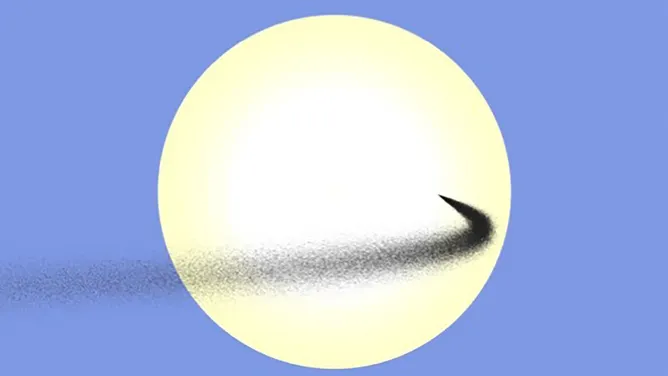A recent study has shown that moon dust may assist to mitigate the effects of climate change by reducing the rate at which Earth’s temperature rises.
The possibility of utilizing moon particles to block sunlight before it reaches Earth was investigated by researchers at the University of Utah.
For decades, researchers have considered using screens, objects or dust particles to block just enough of the sun’s radiation – between 1% and 2% – to mitigate the effects of global warming, a journal published Wednesday in PLOS Climate stated. Now, they have analyzed different properties of dust particles, quantities of dust and the orbits that would be best suited for shading Earth.
Ben Bromley, professor of physics and astronomy and lead author of the study, joined a team of astronomers who applied a technique to study planet formation around distant stars.
Read also: Death toll in Turkey, Syria earthquake rises to over16,000
Planet formation is a “messy process that kicks up lots of astronomical dust that can form rings around the host star,” according to the journal. “These rings intercept light from the central star and re-radiate it in a way that we can detect it on Earth,”. “One way to discover stars that are forming new planets is to look for these dusty rings.”
The authors who undertook the study found that launching dust from Earth to a way station at the Lagrange point 1 (L1) between Earth and the sun would be most effective but would require astronomical cost and effort. According to them, L1 is the closest point between Earth and the sun where the gravitational forces are balanced.
“It was rather difficult to get the shield to stay at L1 long enough to cast a meaningful shadow,” said Sameer Khan, an undergraduate student and the study’s co-author. “This shouldn’t come as a surprise, though, since L1 is an unstable equilibrium point. Even the slightest deviation in the sun-shield’s orbit can cause it to rapidly drift out of place, so our simulations had to be extremely precise.”
An alternative is to launch dust from our moon as a cheap and effective way to shade the Earth.
“We aren’t experts in climate change, or the rocket science needed to move mass from one place to the other,” Bromley said. “We’re just exploring different kinds of dust on a variety of orbits to see how effective this approach might be. We do not want to miss a game changer for such a critical problem.”
This story was adapted from Fox weather.
